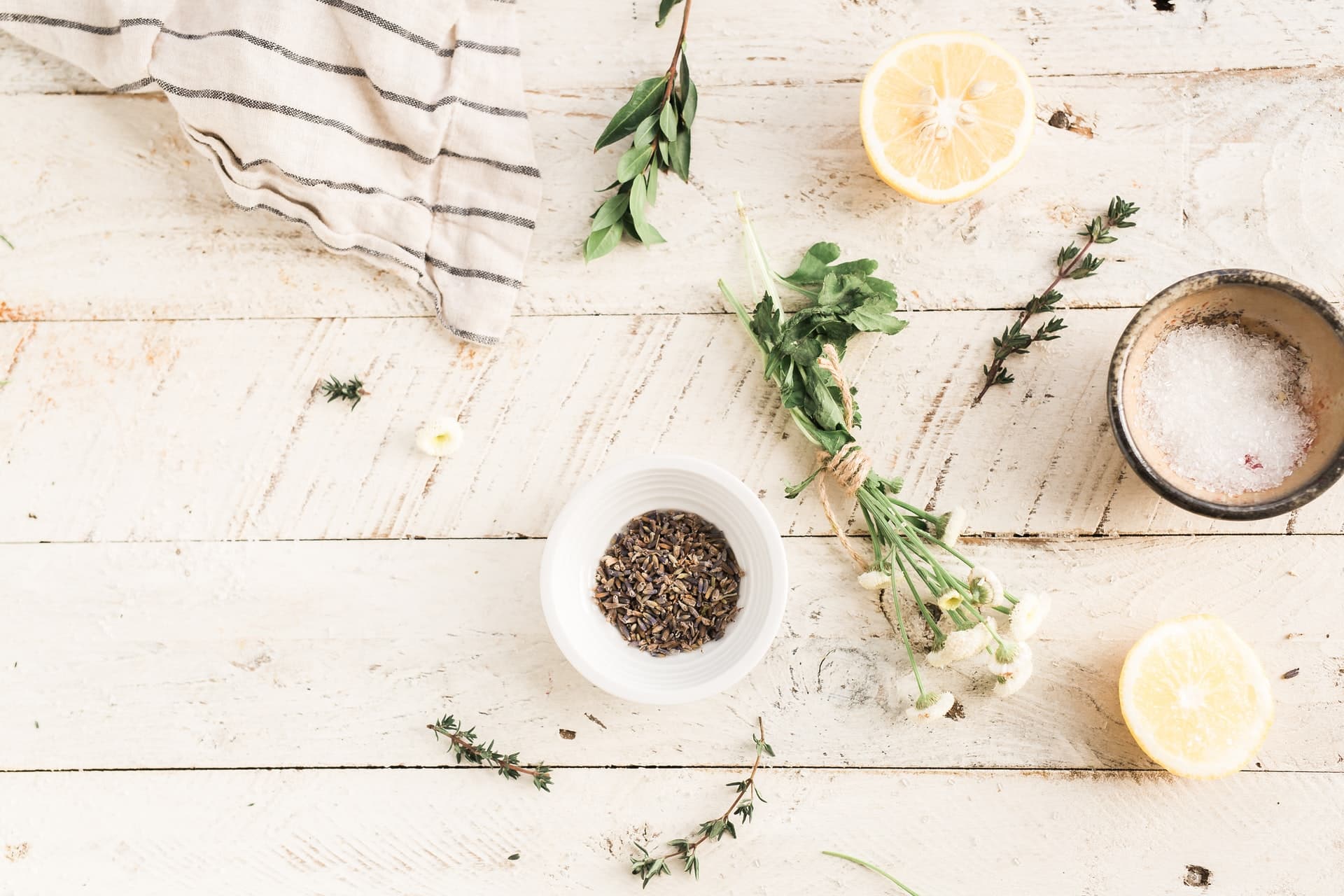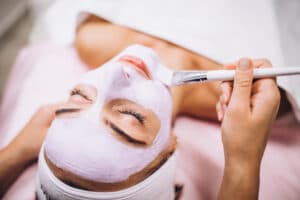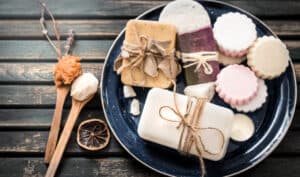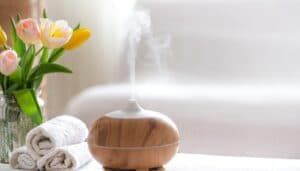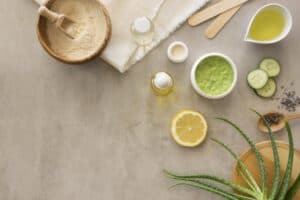Facials are all well and good (really good actually!), but what do you do in-between facials to keep your skin glowing? If you have dry skin, we have some tips for you! And they apply both to your face, and the rest of your body.
The First Step to Combating Dryness—Understanding How It Works
Dryness, as the name implies, means that there is too little moisture in the skin. This would make one think that water is needed to create moisture. This is true. But if you just have a bath, chances are it will leave your skin dry instead of moisturized.
Why?
When you bath, or have a hot shower, you rinse off the oil on your skin. Your skin is made up of layers. If the first layer is too thin, moisture tends to escape. Oil is what keeps it locked in.
To improve moisture, therefore, if you have a bath, you want to apply oil as soon as you’ve dried off. This will lock in the moisture in the skin.
If you aren’t showering, you want to use moisturizers such as “ceramides (pronounced ser-A-mids), glycerin, sorbitol, hyaluronic acid, and lecithin,” according to Harvard Health. Though a natural option would be aloe vera and a dash of water. Then, seal it with an oil, or butter, or both—such as shea butter and coconut oil, or cocoa butter and olive oil.
Body lotions, and body creams, usually contain both a moisturizer and an oil.
The Second Step to Combating Dryness—Eating Well
What you eat feeds your body. You need both energy and nutrients for optimal functioning. Plus, for nice skin you need to stay hydrated.
In short, by eating a varied whole foods diet rich in vegetables and fruits the color of the rainbow and staying hydrated, your skin is less likely to get dry. As you may still not get all the minerals and vitamins needed, try taking a multivitamin a few times a week. You don’t need one every day if you eat well, but taking one a couple of days every week will help ensure you get the nutrients you need for your skin to stay happy.
The Third Step to Combating Dryness—Avoiding Soap
Soap removes oil from the skin. As a result, you end up with dry skin and your skin will fight to create more oil. This, in turn, can lead to your face ending up both oily and dry at the same time. Your skin seems to be flaking off, but you have oily patches and are prone to acne.
Soap is needed to prevent your feet and armpits from smelling, as well as for washing off huge amounts of dirt, or bacteria—usually on your hands. For the rest of your body, soap isn’t strictly necessary unless you’ve been rolling around in a muddy puddle.
Just as long hot showers and baths will remove too much oil from your skin, so will soap.
If you need soap, use one that’s moisturizing in nature and is devoid of chemicals.
Likewise, avoid scrubbing your skin with a sponge, or brush, on a daily basis. Limit it to once a week to get rid of dry skin cells and maybe try doing it the Moroccan way using an olive oil soap that’s very oily, which is applied to the skin before scrubbing yourself with an exfoliating glove.
If you can’t find Moroccan black soap, or don’t want to use it, simply use a scrub made from olive oil, or sunflower oil (both said to combat skin dryness) and sugar.
The Fourth Step to Combating Dryness—Using a Humidifier
In desert climate and/or in winter, the air tends to get dry. To prevent your skin from getting dry in these kinds of climates, use a humidifier.
Your skin is, as mentioned, dry in the first place because the moisture is escaping through the first layer of the skin. If you are in a dry environment, this is accelerated as there is no moisture in the air to replenish what just escaped.
If you suffer from dry skin, you might very well have experienced getting itchy in winter or when visiting drier climates, such as the desert.
If unsure about the level of humidity in the air where you’re staying, just check the weather report (humidity varies daily).
Also, remember you don’t want to expose your skin to dry cold air—wrap up well and avoid clothes that irritate your skin, such as wool placed directly on the skin.
The Fifth Step—The Right Products
There are a range of different ingredients that can be used for exfoliating scrubs, lotions, and facemarks that have been proven beneficial in treating and preventing dry skin. These include:
- Honey
- Oatmeal (mix flour in water)
- Avocado (for a facial)
- Olive oil
- Coconut oil
- Sunflower oil
- Aloe vera
- Milk (applied as a compress or aded to a facial, but it can sting cracked skin)
- Petroleum jelly
In Closing
There are many ways to prevent your skin from getting dry, as well as staying moisturized. It isn’t just about finding great products for the skin that moisturizes and lock in the moisture, but also about eating well, dressing well, and having good washing habits (i.e. avoiding long hot baths, and making sure to apply moisturizer as soon as you’ve dried yourself).











